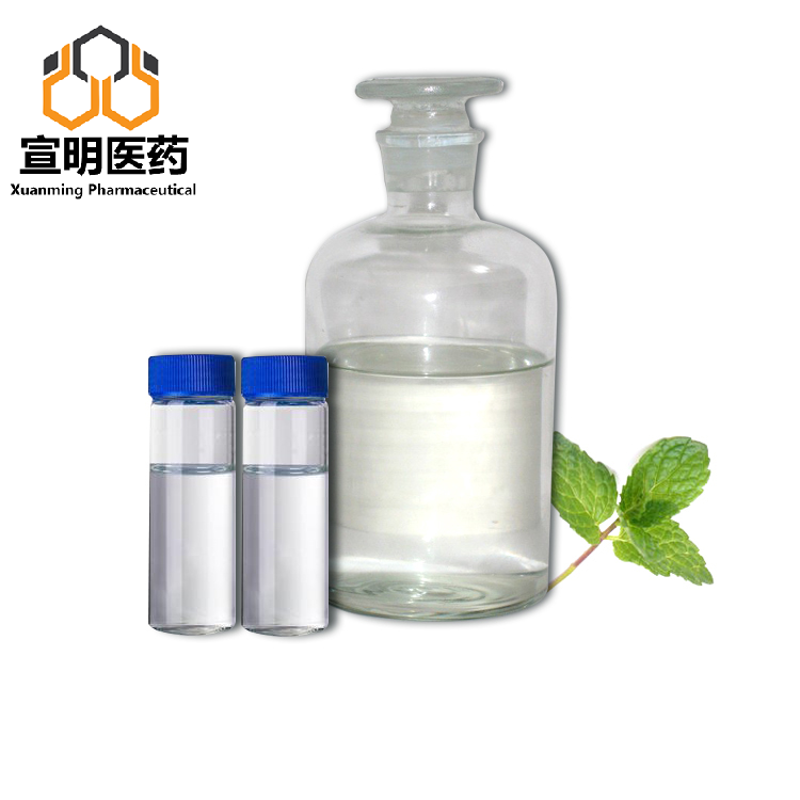-
Categories
-
Pharmaceutical Intermediates
-
Active Pharmaceutical Ingredients
-
Food Additives
- Industrial Coatings
- Agrochemicals
- Dyes and Pigments
- Surfactant
- Flavors and Fragrances
- Chemical Reagents
- Catalyst and Auxiliary
- Natural Products
- Inorganic Chemistry
-
Organic Chemistry
-
Biochemical Engineering
- Analytical Chemistry
-
Cosmetic Ingredient
- Water Treatment Chemical
-
Pharmaceutical Intermediates
Promotion
ECHEMI Mall
Wholesale
Weekly Price
Exhibition
News
-
Trade Service
On October 20, BeiGene announced that its innovative drug Baiyueze® (Zebutinib) has been approved by the Russian Ministry of Health for the treatment of adult patients with mantle cell lymphoma (MCL) who have received at least one treatment in the past
.
At present, BeiGene and Nanolek have signed an exclusive distribution agreement.
Nanolek has the right to commercialize BeiGene in the Russian Federation
.
It is understood that Nanolek is a Russian biopharmaceutical company specializing in the production of imported alternative drugs and innovative drugs
.
The industry believes that the approval of Baiyueze® will bring new choices for clinicians and patients, and is expected to help Russian patients with MCL obtain better prognosis and better tolerable treatment options
.
And its cooperation with Nanolek will also play a strong role in accelerating the promotion of Baiyueze® to benefit cancer patients in Russia and patients around the world
.
According to data, Baiyueze® is a small molecule inhibitor of Bruton's tyrosine kinase (BTK) independently developed by BeiGene scientists
.
Since November 2019, Baiyueze® received accelerated approval from the U.
S.
Food and Drug Administration (FDA) and achieved the "zero breakthrough" of China's original anti-cancer drug to go overseas, and it began to conduct extensive key clinical trials around the world Project, as a single agent and combined with other therapies to treat a variety of B-cell malignancies
.
In May 2020, Baiyueze was approved in China for the treatment of adult mantle cell lymphoma (MCL) patients who have received at least one therapy in the past, and adult chronic lymphocytic leukemia (CLL) who have received at least one therapy in the past.
/Small lymphocytic lymphoma (SLL) patients
.
In June of this year, the European Medicines Agency (EMA) accepted a marketing authorization application (MAA) for Baiyueze® to treat WM, specifically: for the treatment of relapsed/refractory (R/R) patients who have received at least one therapy in the past.
) WM patients, WM patients who are not suitable for chemotherapy for first-line treatment (initial treatment)
.
Later, in October, BeiGene announced that Baiyueze® (Zebutinib) had been approved in Australia for the treatment of adult patients with mantle cell lymphoma (MCL) who had previously received at least one therapy, as well as Huashi Adult patients with macroglobulinemia (WM)
.
According to statistics, so far this year, Baiyueze® has obtained 12 drug regulatory approvals in the United States, Canada, Latin America, APAC and EMEA
.
It is worth noting that in addition to Baiyueze®, BeiGene's self-developed PD-1 antibody drug Tislelizumab (Tislelizumab injection) has once again created a new record for local anti-cancer drugs to go overseas
.
On January 12 this year, BeiGene announced a cooperation and licensing agreement with Swiss pharmaceutical giant Novartis
.
According to the agreement, Novartis will obtain the development, production and sales of Tislelizumab (Tislelizumab) rights in multiple countries
.
BeiGene will receive an advance payment of 650 million U.
S.
dollars, and the total transaction amount will exceed 2.
2 billion U.
S.
dollars
.
This cooperation refreshed the license-out prepayment record for Chinese local innovative drugs, and also set the current record of the amount of single-drug authorized transactions in China
.
Analysis believes that BeiGene's multiple innovative drugs have now been approved in many countries around the world, which has fully demonstrated its ability in new drug research and development, as well as overseas development and commercialization
.
It also means that the new drug research and development capabilities of China's local innovative companies have gradually been recognized by overseas markets
.
In the future, the industry expects that under the general trend of domestic innovation, more and more innovative pharmaceutical companies' products will join this wave
.







